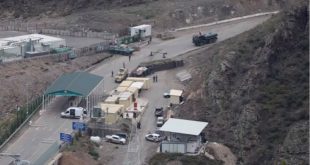Protest rallies in Myanmar have been organized to condemn the military rule and mark the anniversary of a popular 1988 uprising against a previous army junta, which facilitated Aung San Suu Kyi’s rise to prominence.
Several groups of protesters marched in Myanmar’s largest city, Yangon, and second city, Mandalay, on Sunday to commemorate the 1988 uprising– a series of nationwide pro-democracy protests, marches, and riots that culminated on August 8 that year.
Thousands of protesters were killed during the uprising, which ended on September 18 by a bloody military coup.
The uprising, however, saw Suu Kyi emerge as a national icon. Her party, the National League for Democracy, won 81 percent of the seats in the government in an election in 1990. The junta refused to recognize the results and continued to rule the country.
Myanmar has been in turmoil once again since February 1, when the military seized power from the civilian government and arrested Suu Kyi and many of her associates.
So far, more than 900 people have been killed and about 200,000 have been forced to flee their homes as a result of the crackdown.
However, the anti-coup protesters continue to take to the streets on an almost daily basis, demanding the restoration of civilian rule.
Since the junta seized power, Myanmar’s economy has collapsed, triggering a new exodus of refugees fleeing from economic hardships, worsened by the deadly crackdown and a surge in coronavirus infections.
The coup has also worsened the conflict between the country’s military and ethnic rebel groups, prompting new clashes that have displaced thousands of people.
The military ruler, Min Aung Hlaing, who has promised to hold elections in one year, formed a provisional administration earlier this month and extended the deadline for new elections to almost two years and a half.
 Alghadeer TV Alghadeer TV
Alghadeer TV Alghadeer TV
